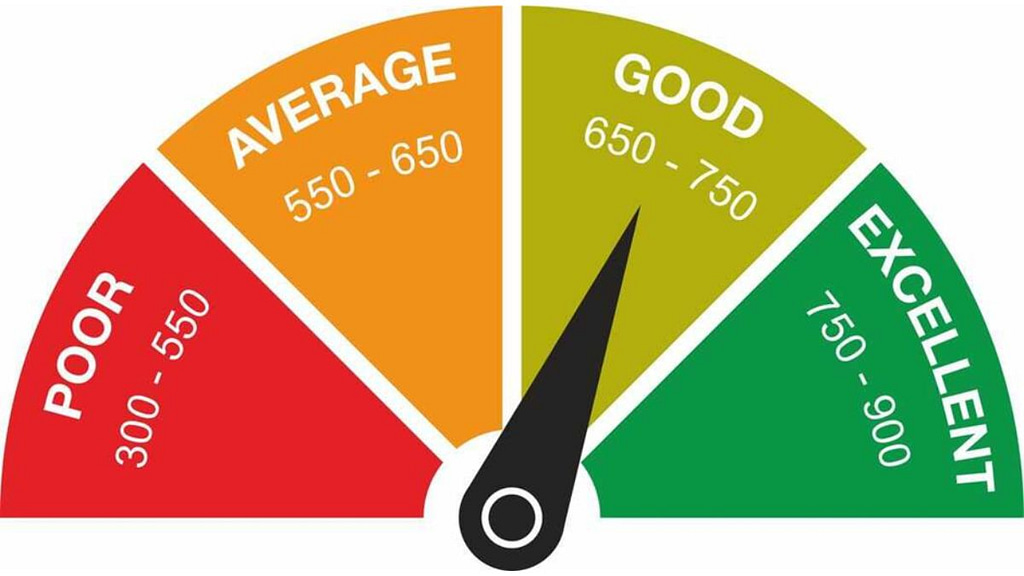Buying a home is a dream for many, but the journey towards achieving this dream comes with so many challenges. One such challenge is securing a home loan at a favourable interest rate. The home loan interest rate can significantly impact your finances over the loan’s tenure. So, understanding how to secure a home loan at a lower interest rate is crucial. One of the key factors that lenders look at when deciding this rate is the applicant’s credit score. This blog will help you simplify how your CIBIL score for home loans can affect the interest rate, ensuring you’re well-informed.
Understanding Your CIBIL Score
Your CIBIL score is like a financial report card that shows how well you manage your credit. It ranges from 300 to 900, with higher scores (700 or more) indicating better creditworthiness. Here’s why it matters.
- Higher chance of loan approval: A good score suggests you’re good at managing your debt, making lender more likely to approve your loan application.
- Better interest rates: Lenders might offer lower interest rates to applicants with high scores, which are considered lower risk.
- Broader loan options: With a higher CIBIL score, you may gain access to a wider selection of loan products, including those with more attractive terms and conditions. Lenders view such applicants as less risky and, thus, are more willing to provide them with various options.
- Faster loan processing: Applicants with strong CIBIL scores often benefit from quicker loan approvals. Since their credit history already demonstrates financial reliability, lenders can speed up their loan processing, leading to a smoother and faster borrowing experience.
- Negotiation leverage: A good CIBIL score empowers you to negotiate better loan terms. This could mean negotiating for lower interest rates, waiver of processing fees, or more flexible repayment options, as lenders are often willing to accommodate the needs of a creditworthy applicant.
Why CIBIL Score Matters
- It reflects your financial health: Your score is based on your past loan and credit card repayments, how much credit you use, and how often you apply for new credit.
- Lenders check your score first: Most lenders will check your CIBIL score to evaluate your loan application before looking at your income or other factors.
- Influences loan amount: A good CIBIL score can significantly impact the loan amount you are eligible for. Higher scores can lead to lenders offering you a larger loan since they feel confident in your ability to repay based on your credit history.
- Improved loan terms: Apart from interest rates, a solid CIBIL score can help you secure more favourable loan terms. This could include longer repayment periods, more flexible loan structures, or even less hefty down payments.
- Access to premium credit products: With a strong CIBIL score, borrowers might also gain access to premium credit products, such as platinum credit cards or loans with added benefits.
How CIBIL Score Affects Home Loan Interest Rates
Your CIBIL score for a home loan directly influences the interest rate lenders charge. Here’s a breakdown of how this works.
- Lower scores could mean higher rates: A lower CIBIL score may fetch you a loan but at a higher interest rate, given the perceived higher risk by the lender.
- High scores could lead to savings: A higher CIBIL score might qualify you for lower interest rates, translating into lower monthly repayments and substantial savings over the loan’s tenure.
Improving Your CIBIL Score for Better Loan Terms
Improving your CIBIL score is crucial for securing favourable loan terms. But a less-than-ideal score isn’t the end of the road; there are effective strategies to enhance it. If your score isn’t where it should be, don’t worry. There are ways to improve it.
- Pay your bills on time: Late payments can negatively affect your score, so always pay your bills and EMIs on time.
- Keep your credit utilisation low: Try not to use more than 30% of your credit limit. High utilisation can lower your score.
- Check your credit report regularly: Errors can happen. Regularly checking your credit report can help you spot and rectify any mistakes that might bring your score down.
- Limit your new credit enquiries: Every time you fill out a new form for a loan, it is counted as a hard inquiry into your credit report, which can lower your credit score. Limiting the number of new credit applications can help maintain or improve your CIBIL score.
- Maintain a healthy mix of credit: Having various credit types (such as a mix of credit cards, personal loans, and secured loans) and managing them well can positively impact your credit score. It shows lenders that you can handle different types of credit responsibly.
- Increase the length of your credit history: The longer your credit history, the better it is for your CIBIL score. Keep old accounts in good standing, as they contribute to a longer credit history and demonstrate your long-term financial reliability.
Take Control of Your Credit
Understanding the impact of CIBIL score on home loan interest rates is important. A good score increases your chances of getting your loan approval faster at better interest rates, saving you a significant amount of money in the long run. By managing your credit responsibly and keeping an eye on your score, you can put yourself in a stronger position to negotiate your loan terms and achieve your dream of owning a home.
Securing a lower home loan interest rate is within reach if you maintain a healthy CIBIL score. Start by paying your existing debts on time, monitoring your credit usage, and regularly checking your credit report for any inaccuracies. You can improve your credit score with patience and discipline, making your home loan journey smoother and more affordable.










